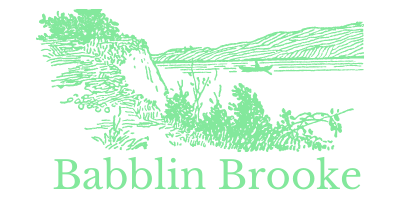Everyone has insurance, and it’s important to know what you can claim when things go haywire. Let’s discuss the most common types of insurance available for the average person and how you can get the most out of them when a mishap occurs.
Health Insurance Benefits
Health insurance benefits can be incredibly beneficial for both you and your family. Here are some of the most common benefits and how to get the most out of them:
- Inpatient hospital coverage: This is usually standard health insurance coverage for people who have a job or are self-employed. Inpatient hospital coverage typically covers a person’s costs for all or part of their stay at a hospital, including any required treatments and procedures.
- Outpatient hospital services: Outpatient hospital services, also known as outpatient surgery, can include checkups, childbirth, oral surgery, and more. Your health insurance plan can often cover these services if they are medically necessary.
- Prescription drugs: Many prescription drugs are covered by health insurance plans, though not all medications are. Your plan may cover a certain percentage of the cost of your medication, or it may include a specific list of medications that are automatically covered.
- Healthcare providers: Healthcare providers should be someone you trust to help keep you healthy. While every individual’s situation is different, many healthcare providers offer discounts or free services to their patients through their health insurance plans. Furthermore, through payer contracting and negotiated agreements, healthcare providers strive to deliver quality care while minimizing the financial burden on their patients. These arrangements often include negotiated rates for services and treatments, ensuring that patients receive the necessary care without facing exorbitant costs.
- Dental coverage: Dental coverage is an integral component of many health insurance plans, with variations in coverage depending on the specific policy. For employees enrolled in employer-sponsored health insurance, dental coverage is often a mandatory inclusion. Additionally, individuals may opt for dental coverage as an add-on to individual health insurance policies. This dental coverage typically encompasses a range of services aimed at maintaining oral health and addressing dental issues. Among the services covered, treatment for temporomandibular joint (TMJ) and temporomandibular joint disorder (TMD) is often included. TMJ and TMD dental services may encompass diagnostic evaluations, consultations with dental professionals, imaging tests, and various treatment modalities aimed at alleviating symptoms and improving jaw function.
In general, having comprehensive health insurance is essential for ensuring a secure and seamless healthcare experience. Taking the help of an initiative like PrimeWest Health or something similar can ensure that you get the best possible plan for your needs. A comprehensive health insurance plan not only safeguards against unforeseen medical expenses but also promotes preventive care, ensuring early detection and management of potential health issues.
Dental and Vision Insurance
Dental and vision insurance are two important types of insurance that can protect you and your family. Here are the dental and vision insurance benefits:
Dental Insurance
One of the most common benefits provided by dental insurance is coverage for dental work. This can include routine check-ups and cleanings to more serious procedures like full dentures or a root canal. Many policies offer coverage for preventive care, such as sealants and fluoride treatments.
Vision Insurance
Just as with dental insurance, vision insurance offers a variety of benefits related to vision care. Some policies cover routine check-ups and cleanings, while others may cover more serious procedures like cataract surgery or refractive surgery (eyeglasses).
Basic Life Insurance
The basics of life insurance include the following:
- Insurance protects you and your loved ones if something happens to you.
- Different types of life insurance can offer different benefits.
- To get the most out of life insurance, it’s important to understand the different types of coverage and what each offers.
- Some basic life insurance tips include understanding how much coverage you need and finding a policy that meets your needs.
- You can also get additional benefits by adding supplemental life insurance or estate planning protection.
Disability Insurance
Disability insurance is a type of insurance that can provide financial security and protection in the event of an unexpected disability. It can help cover medical expenses, income replacement, and other benefits related to a disabling condition.
There are different types of disability insurance, each offering different benefits and protections. Selecting the right disability policy is important because it will cover your specific needs and restrictions. You’ll want to find a policy that covers you for long-term disabilities as well as short-term disabilities.
Bankruptcy Protection
Bankruptcy protection is an important benefit to have in a financial emergency. Bankruptcy can help you avoid foreclosure, reduce your debt, and get a fresh start. Here are the most common insurance benefits and how to get the most out of them:
- Homeowners Insurance: In some cases, homeowners insurance can cover damages that occur as a result of a bankruptcy filing. Make sure you discuss this benefit with your policy provider, so you know what’s covered and what isn’t.
- Car Insurance: If you file for bankruptcy, your car insurance might be canceled or reduced. Verify this with your insurer before filing for bankruptcy to ensure you’re getting the best possible deal.
- Life Insurance: If you file for bankruptcy, your life insurance policy might be canceled or reduced in value. Ask your agent about this possibility before filing for bankruptcy to ensure you get the best possible deal.
- Credit Cards: If you file for bankruptcy, all your outstanding credit cards will be automatically canceled, and any existing debt on those cards will be transferred to your new credit score.
Auto Insurance
When it comes to auto insurance, its significance cannot be overstated in providing financial protection in the event of vehicular mishaps. Whether it’s a minor fender-bender or a major collision, having the right auto insurance coverage is crucial for mitigating potential financial losses and liabilities. Wondering where to get it from? How about you visit website of companies like Insurance Cloud?
Anyway, it’s important to remember that auto insurance goes beyond simply protecting your vehicle. It also provides coverage for medical expenses, property damage, and even legal fees that may result from accidents.
However, to truly maximize the benefits of auto insurance, it’s essential to understand the intricacies of different coverage options and tailor them to individual needs. From liability coverage to comprehensive and collision coverage, each component serves a specific purpose in safeguarding drivers and their assets.
The type of automotive vehicle in question must also be considered when choosing an insurance policy. For instance, truck owners need to consider their personal safety as well as the interests of the company for whom they are transporting goods. In these situations, experienced attorneys can help out. Additionally, in case any accident occurs, an expert truck accident attorney can step in, offering invaluable assistance in navigating the complexities of insurance claims and advocating for the rights of those involved.
401(k)s and IRAs
401(k)s and IRAs are two popular retirement savings vehicles. Both offer tax breaks and other benefits, but which is right for you? Here’s what you need to know about 401(k)s and IRAs before deciding:
- 401(k)s: 401(k) plans are private plans offered by employers. Employees usually have the option of enrolling in a 401(k) plan through their employer or participating in a self-sponsored 401(k). There are several types of contributions that can be made into a 401(k), including after-tax dollars. The money invested grows tax-deferred until withdrawn, at which point any earnings on the investment will be taxable. Some employer contributions also come with matching funds, meaning that the employee’s contribution gets increased by an additional percentage up to a certain limit.
- IRAs: Individual retirement accounts (IRAs) are also private plans offered by employers, but they differ from 401(k)s in several ways. For one thing, IRA contributions are not capped like 401(k) contributions are; there’s no upper limit on how much an individual can contribute to an IRA each year. Additionally, IRA withdrawals are taxed as income when received, unlike 401(k) withdrawals, where any earnings on the withdrawal are generally taxed as long-term capital gains rather than ordinary income however if an individual is over 59 years old when he or she begins making IRA.






Leave A Comment